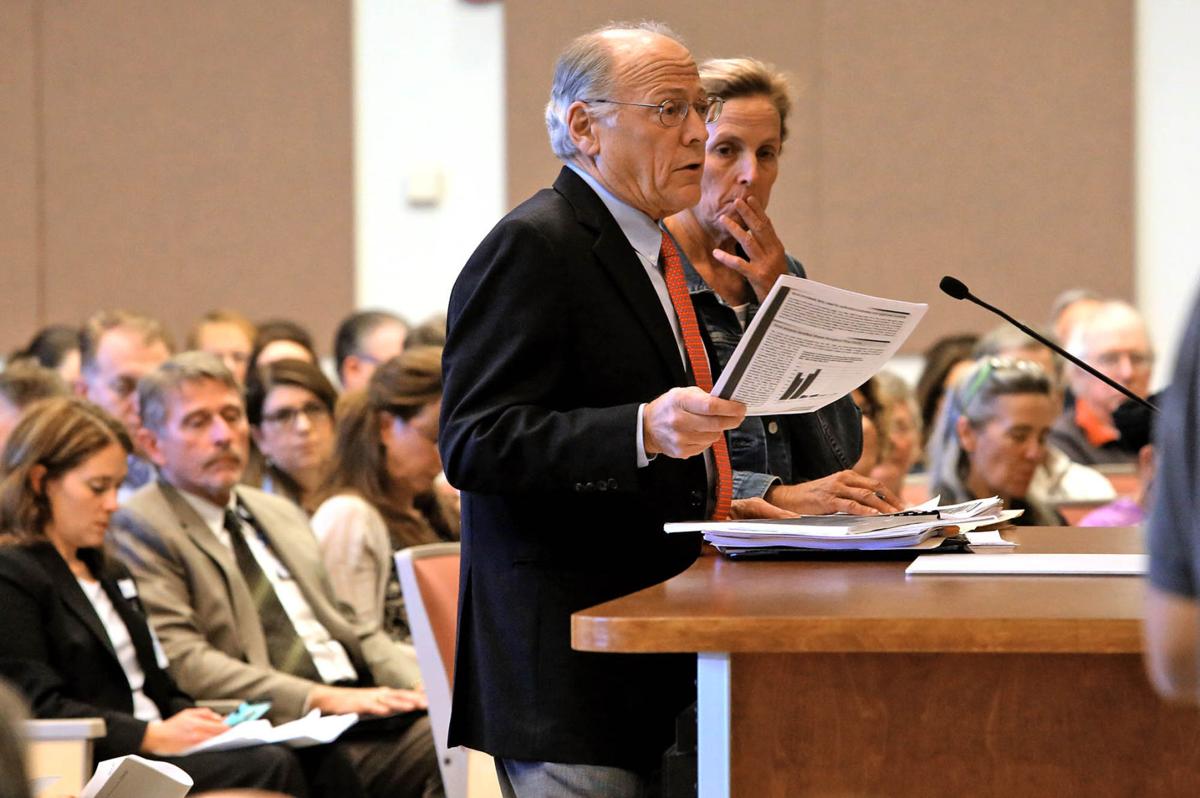Campaign finance reports filed Friday with the Pima County Elections Department show the group Yes on Pima County Bonds raised more than $304,000 in support of the seven bond questions on Tuesday’s election ballot.
“It’s a true community coalition,” said Larry Hecker, with the Yes on Pima County Bonds campaign.
Hecker described the report as a reflection of broad-based support for the bonds.
The group Taxpayers Against Pima Bonds had not filed financial reports as of Saturday. Reports were due by midnight Friday.
Special notifications filed earlier in the campaign show Taxpayers Against Pima Bonds had raised about $10,000 as of mid-October.
Taxpayers Against Pima Bonds campaign chairwoman Gini Crawford said the group planned to have its paperwork filed by Monday.
“We’ve had a lot of grassroots support,” Crawford said. “I didn’t expect to get a lot of money.”
She said the financial picture has changed only slightly from the October reports. The group’s largest contribution was $2,000 from the Ruth McClung for Congress Committee.
McClung ran unsuccessfully as a Republican in 2010 against Democratic Congressman Raúl Grijalva. The McClung committee still had more than $20,000 in the bank as of April, according to the most recent federal elections financial reports. McClung is the daughter of Taxpayers Against Pima Bonds campaign chairwoman Crawford.
On Tuesday, voters will decide the fate of the seven-question, $816 million borrowing plan.
The bond questions cover projects to build parks, roads, flood controls and tourism amenities among the 99 individual projects.
All together, the seven questions would add 39 cents to the county’s secondary property tax over the 27-year payoff schedule. The increases would be staggered over the years, as the county pays down existing debt, with the total secondary rate not exceeding the county’s self-imposed limit of 81.5 cents per $100 of assessed value.
The current secondary rate is 70 cents.
Homeowners with a home valued at the region’s $152,000 average would pay about $59 per year in secondary taxes to pay off the bonds.
Bond opponents have criticized some of the large corporate donations the pro-bond camp has received. “It has given us a lot of Democrat, far-left support because they see a lot of fat cats (supporting the bonds),” Crawford said.
The Tuttle-Click Automotive Group donated $25,000 in support of the bonds. “How does Jim Click Ford benefit? He benefits because a stronger economy means more people can buy cars,” Hecker said, adding, “People recognize that these bonds will benefit everyone.”
Other large donors in support of the bonds include the Sundt Companies, $5,000; Cox Communications, $8,000; Tucson Medical Center, $15,000; and Diamond Ventures, which donated $25,000.
The Arizona Aerospace Foundation donated $5,000 to the campaign. The group operates the county-owned Pima Air and Space Museum, which is slated for $4 million in bond-funded improvements.
Banner Health donated $15,000. The company is the contractor that runs Banner-University Medical Center and the county-owned Banner-University Medical Center South Campus, which is in line for an $18 million bond-funded service expansion.





